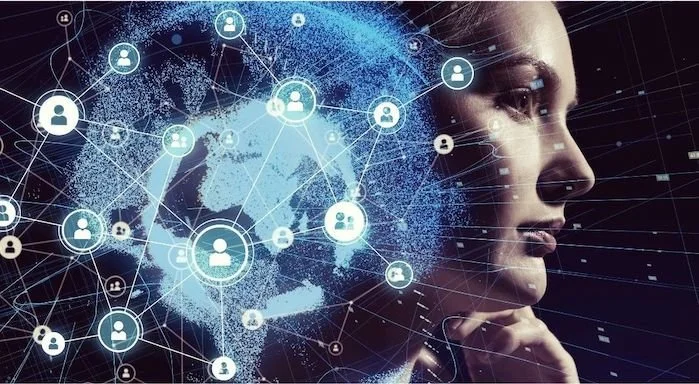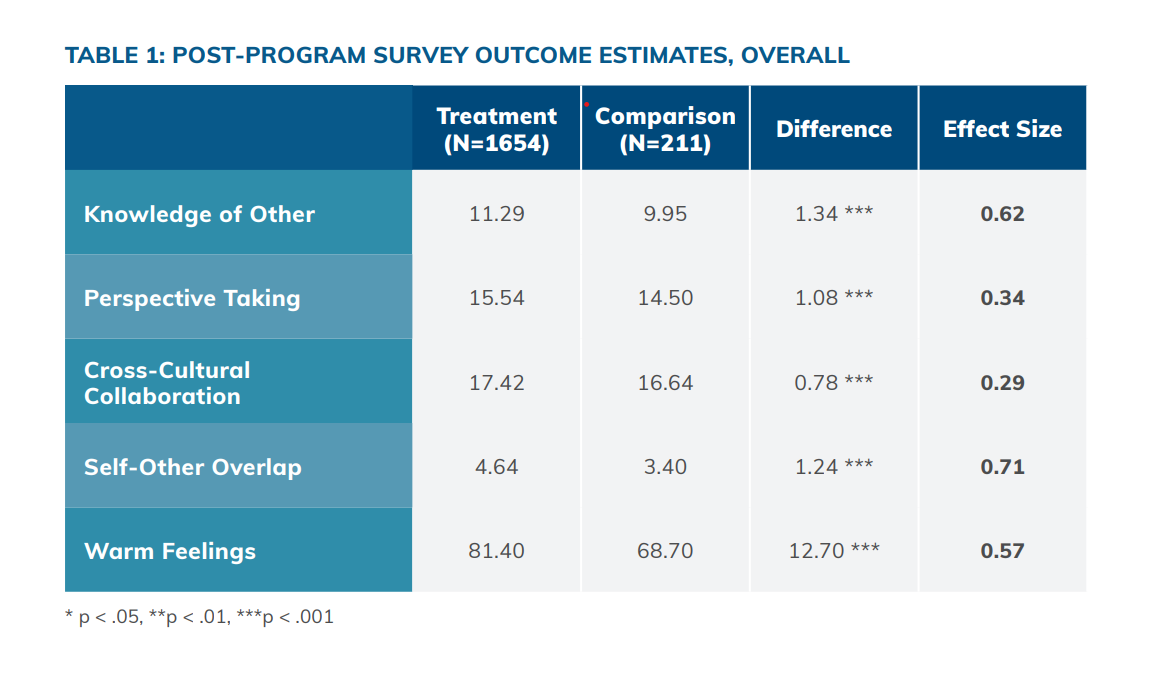Commentary | A Social Science Study Offers Lessons for Improving Human Experiences Online
By Salma Elbeblawi, Chief Programs Officer, Soliya
If the Metaverse, a visually enhanced, immersive experience of the internet, is indeed upon us, are we destined to spend more time online? If so, what impact will it have on our social interactions and 21st Century education and skills?
There was never a problem with new technologies supporting the development of hard skills. The so-called “soft skills” are the ones that seemed to suffer as interactions increasingly moved online, with platforms, apps, and algorithms coming in between us and other humans. After all, how can you develop and practice human skills if you are not interacting with other humans? Communication, the ability to work collaboratively in teams, conflict resolution, emotional and social awareness, and empathy are skills and attitudes attributed to humans, less so to machines. That is one more reason to pay closer attention to them, as soft skills remain to be one area where humans still maintain a competitive advantage over machines. There aren’t many others.
Even fewer are methodologies that can bring people together for meaningful, interactive learning, seamlessly blending pedagogy and technology. Those that apply sound impact measurements are rarer still. Establishing cause and effect relationships on social and emotional skills is not fail-proof, but it is worth the effort. That’s what our latest Quasi-Experimental Design (QED) set out to achieve. Cited in the 2022 Virtual Exchange Impact and Learning Report commissioned by the Stevens Initiative of the Aspen Institute, our QED, which focused on our Connect Program, showed statistically significant (p<0.001) positive change compared to a comparison group, on all measures.
“Soliya program participants had consistently higher global competencies in the post-program survey than the comparison group […] Like the overall results, the effect of Soliya participation was positive and statistically significant across all five scales in both regions,” concluded the study, carried out by RTI International, an independent, nonprofit research institute with a mission to study and report on issues affecting the human condition.
There are existing studies to be built on to understand and predict how humans can continue to learn, socialize, and thrive in online environments.
Virtual exchanges are facilitated, synchronous (live), online, cross-cultural, and cross-border exchanges for the purposes of learning. The Virtual Exchange Impact and Learning Report, a compilation of the impact of Stevens Initiative-funded virtual exchange programs (Summer 2020 through Spring 2021), also surveyed our 2,379 participants from the United States, the Middle East, and North Africa. The results demonstrated impact on a variety of measures, including knowledge of the other, empathy, and key global competencies such as perspective-taking, cross-cultural communication, and collaboration. Soliya’s own program results are on par with the summarized results shared in this report, where statistically significant positive changes on all or most impact measures are equal for participants from the United States and MENA. These results have also been consistent with those summarized in the 2019 and 2020 reports. Soliya has been a grantee of *the Stevens Initiative from 2016 to 2017 and then again from 2019 and onwards.
A Quasi-Experimental Design (QED) is a rigorous impact assessment that involves comparing the change observed in participants (treatment group) to that of fellow students who have not participated in the program (comparison group). This is often referred to as a controlled study, and its purpose is to more confidently attribute the change observed in participants directly to their participation, removing the possibility that other variables may have led to that change.
Impact assessment of online initiatives with social and emotional learning objectives is not new. There are existing studies to be built on to understand and predict how humans can continue to learn, socialize, and thrive in online environments. Soliya has been offering virtual exchange programs since 2003, bringing people together for meaningful, interactive learning using a seamless blend of pedagogy and technology. Since then, we have also partnered with lead researchers from the Massachusetts Institute of Technology (MIT), University of Pennsylvania, and University College London to develop validated measurement metrics for virtual exchange and to assess the impact of learning.
If done right, technology can be an ally for human experiences.
The better we understand the impact of virtual exchange and how technology can be effectively utilized for advanced social and emotional learning, the better prepared we will be for new variations of online spaces.
“I learned how it’s so difficult to humanize experiences from just textbooks; hearing and sharing personal stories was very interesting and valuable,” said Nicole, a participant in the survey from the United States. She is right; if done right, technology can be an ally for human experiences.
We hope that not only educators but also the companies that are pouring billions into the development of new, enhanced online spaces pay attention to the scientific methods that can be applied to make sure that online spaces remain hospitable for human experiences, social interactions, and social skills.
*The Connect Program is supported by the Stevens Initiative, which is sponsored by the U.S. Department of State, with funding provided by the U.S. Government, and is administered by the Aspen Institute. The Stevens Initiative is also supported by the Bezos Family Foundation and the governments of Morocco and the United Arab Emirates.




